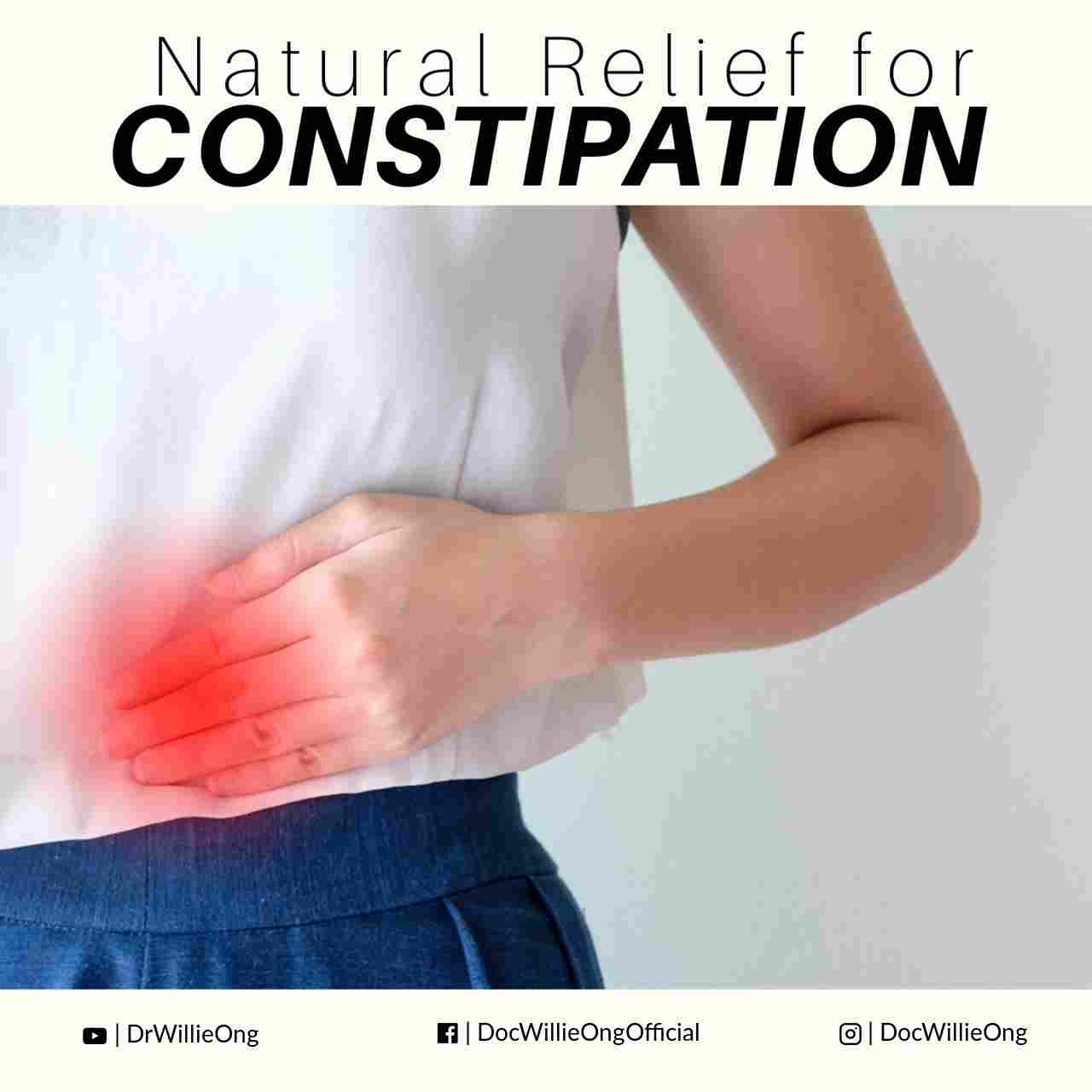By Dr. Willie Ong
Q. My problem is constipation, my friend advised me to take a slimming herbal tea which is very effective for me. However, some people are saying that it has side effects. Could you please enlighten me? Thank you.
A. Slimming herbal tea usually contains senna. Senna is a laxative used by doctors to clear the bowels before a bowel examination or before surgery. Senna and other laxatives may cause diarrhea, nausea, vomiting, rectal irritation, stomach cramps or bloating. Some patients may also experience rapid heart rate, weakness, dizziness, fainting and sweating. It is not advisable to take these drugs for more than a week.
I personally do not give laxative herbal supplements as they could deplete one’s potassium levels. Low levels of potassium can lead to leg numbness, weakness and paralysis. If untreated, patients can die. In addition, laxatives are habit forming and you will end up constipated again once you stop taking it. This is called rebound constipation and laxative dependency.
Many people abuse such laxatives because it helps them lose a little weight. The tried and tested method of eating less, exercise more and choosing healthier foods is safer for your body.
What is Constipation?
Constipation is really a subjective complaint and it just means less frequent bowel movements. The feces become small, hard, and are sometimes painful to push out. There is no such thing as a “normal” bowel movement as this may range from a bowel motion once a week up to 3 times a day
A person’s bowel habit depends on many things, including the food you eat and drink and how much you exercise.
Constipation can be caused by a variety of factors:
- a low-fiber diet,
- inadequate fluid intake,
- poor toilet habits (i.e. not going to the toilet when you need to)
- not enough exercise
- pregnancy
- side-effects of some medications
- old age. Older people,
if you noticed, are usually constipated and sometimes gets obsessed talking about their bowel movements.
Problems with Constipation
Constipation can give rise to hemorrhoids leading to bleeding. Constipation is also potentially harmful for people with heart disease as this can give rise to a heart attack. Did you know that most common household area of a heart attack is the bathroom?
There are many scientists who believe that constipation may also promote cancer of the bowel. If these toxic waste materials are allowed to stay in your bowels for a long time, it might somehow induce cancer.
Drugs for Constipation
Laxatives are drugs which help you move your bowels but these should be used only for a few days as there is potential for abuse. Laxatives come in many forms: liquid, tablets and anal suppositories.
There are laxatives for quick relief (less safe) and other drugs for slow relief (more safe) treatment of constipation. For fast action (you move your bowels in 8-12 hours), there is Bisacodyl 5 mg tab 1-2 tablets at night. I only give one or two doses only, then that’s it. Use is sparingly because we don’t want your bowels to become dependent on these chemicals.
For slower and safer relief of constipation (effective in 2-3 days), you can take Lactulose 1-2 tablespoons every night. Elderly bedridden patients can take lactulose for months. Another safe option is Psyllium. Mix 1 sachet in a glass of water, to be taken once or twice daily.
Despite the availability of these drugs, I would still prefer to treat constipation through natural and healthier means.
Natural Treatment of Constipation:
Eat more fibrous vegetables. The usual culprit for constipation is lack of dietary fiber. Fiber helps form soft, bulky stools and we need 20-30 grams of fiber per day. Our local vegetables are high in fiber, such as kangkong, sitaw and okra. Gradually introduce these food items into your diet. Limit foods that contain little fiber such as ice cream, cheese, meat, snack chips, pizza and processed foods.
Eat more fruits.
Certain fruits give healthy and natural relief for constipation. Watermelon, papaya and grapes promote bowel movement.
Drink plenty of water, up to 8 to 12 glasses a day.
Liquids help keep the stool soft and easy to pass. Many people live unhealthily on just 3-4 glasses of liquids a day.
Move your body.
Regular exercise helps keep your bowels active and moving. A 20-30 minute walk every day is sometimes the best treatment for constipation. Walking, jogging, jumping in the morning can promote bowel movement.
Laugh away your constipation. We’re not kidding but a good belly laugh can help relieve constipation by exercising the abdominal muscles. Laughter has a massaging effect too on the intestines and it can help fight stress. Be happy, not constipated.
Schedule your bowel movement.
Don’t ignore your body’s urge to have a bowel movement. Toilet train yourself by taking time out to have a bowel movement at the same time and place daily.
For the elderly, consider gentle abdominal massage. This promotes movement of the stool through the intestines and works in the same way as exercise does.
Check your other medications.
Some drugs can cause constipation as a side-effect. Common offending drugs are painkillers, anti-depressants and anti-spasm drugs.
When to Consult a Doctor
Most people with constipation do not need to see a doctor. However, you should see your doctor if you have any of the following:
- notice blood in your bowel motions,
- over the age of 40 and with new symptoms,
- losing weight or
- have a family history of bowel cancer.
In my experience, majority of constipation can be treated by natural methods. Discover for yourself what techniques work best for you. Good luck!



